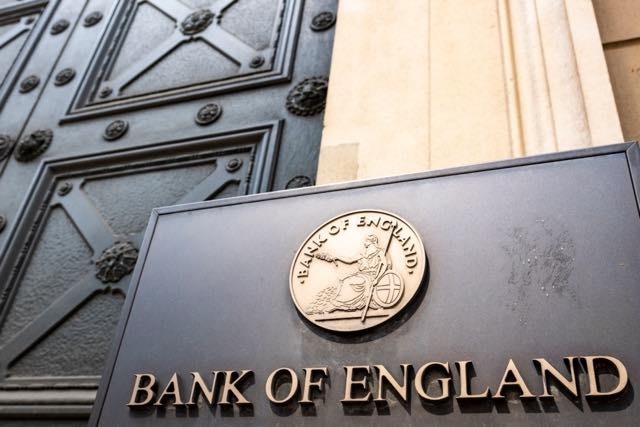The Bank of England today increased its base rate by 50 basis points from 3.5% to 4% - its highest rate since October 2008.
The Monetary Policy Committee voted 7-2 to increase the rate to its highest level for 14 years.
The rate was last at 4% or higher in October 2008 when it was 4.5%.
It is the 10th rise in a row.
The Bank of England’s Monetary Policy Committee (MPC) voted to increase the rate by 50 basis points primarily to curb inflation. Two members preferred to maintain the rate at 3.5%.
The MPC said the inflation of 2% target would not change and further action to curb inflation would be taken if necessary.
In a statement the MPC said: "The MPC’s remit is clear that the inflation target applies at all times, reflecting the primacy of price stability in the UK monetary policy framework.
"The framework recognises that there will be occasions when inflation will depart from the target as a result of shocks and disturbances. The economy has been subject to a sequence of very large and overlapping shocks. Monetary policy will ensure that, as the adjustment to these shocks continues, CPI inflation will return to the 2% target sustainably in the medium term. Monetary policy is also acting to ensure that longer-term inflation expectations are anchored at the 2% target."
The Bank's forecasts suggest the UK will slip into a recession this year but it may be milder than feared in previous forecasts.
The base rate increase, widely expected by experts, has been seen as a signal of the Bank's intention to halt runaway inflation, currently over 10%. The inflation target remains at 2%.
In December, the last time the bank base rate was reviewed, the MPC voted to increase the rate by 50 basis points from 3% to 3.5%.
The latest rise marks an unprecedented period of increases in the base rate which was only 0.1% in March 2020.
Mortgage and savings rates are expected to rise following the latest increase.
Despite the rise some experts see the Bank as unlikely to raise rates much higher in the short term amid signs that inflation pressures are beginning to subside. With the UK facing recessionary factors this year and possibly into next year some experts believe the economy slowing down will keep a lid on inflation.
In the US this week the Federal Reserve raised its target rate by 25 basis points to a target range of 4.5% to 4.75%.
Reaction from industry experts to the Bank of England increase was one of little surprise.
Clare Moffat, pension expert at Royal London, said: "With inflation remaining stubbornly elevated, today’s additional base rate rise doesn’t come as a surprise, but it will be unwelcome news for borrowers of all ages. An increase in interest rates heaps further pain on variable rate mortgage holders, those coming off a fixed rate deal who will see a big jump in costs, and many renters will also see increases passed on.
“The impact of rising interest rates on personal finances is an issue that’s keeping retirees awake at night, with a fifth of retirees (19%) admitting they’re worried about housing costs according to Royal London’s ‘cost of living’ research.”
Adam Ruddle, chief investment Officer at LV=, predicted the base rate would peak at 4.5%.
He said: “Though inflation is beginning to fall, core inflation (that is, inflation excluding food and energy) is looking quite stubborn and the Bank have shown they want to take the bulk of the bitter economic medicine now rather than gently over the first half of the year. We believe the Bank will increase rates perhaps once more in March before pausing. I anticipate that they will peak at 4.5% this year.”
Jonny Black, strategic director, Adviser, Abrdn, said: “This latest interest rate hike will put further pressure on clients’ budgets, particularly those with debt.
“Advisers need to be ready to help those who are facing higher monthly costs. This could mean decreasing the amount they regularly save, or helping review investment strategies to identify where clients can generate extra income.
“Looking ahead, there are suggestions that interest rates will rise even more this year to 4.5%. However, this is a fast-moving environment, with little certainty. One thing’s for sure – when it comes to their money, clients will value advisers’ help in maintaining a long-term view, and avoiding any short-sighted reactions that may leave them worse-off.

